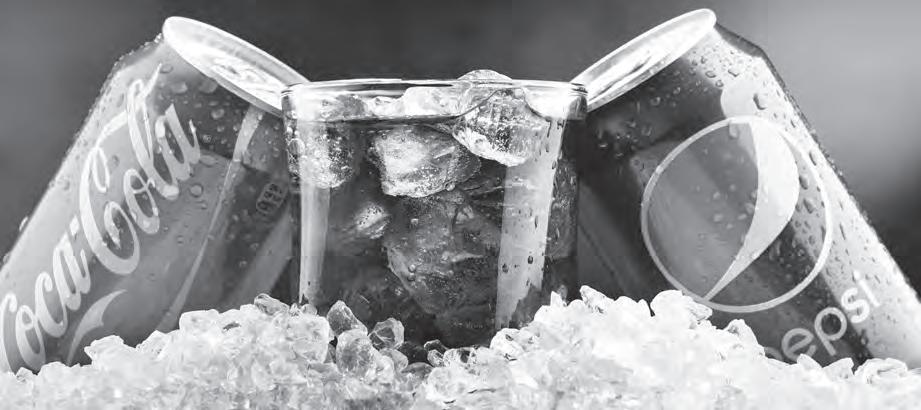
2 minute read
The War in Sudan is Coming After Your Coca-Cola
By Lisa Vives Global Information Network
The conflict in Sudan has left international consumer goods makers without a key ingredient for fizzy drinks and other things from chewing gum to pharmaceuticals.
About 70% of the world’s supply of gum arabic, for which there are few substitutes, comes from the acacia trees in the Sahel region that runs through Africa’s third-largest country and which is being torn apart by fighting between the army and a paramilitary force.
Companies dependent on the product, such as CocaCola and Pepsi, say they have stockpiled supplies, often keeping between three-tosix months worth to avoid being caught short.

Depending on how long the conflict continues, there may well be shortages of the finished product on the shelf. Current stockpiles could even run out in five- to-six months.
Global production of gum arabic, worth $1.1 billion, lies mostly in the “gum belt” that stretches 500 miles from the East to the West of Africa.
Right now, it looks impossible to source additional gum arabic from rural parts of Sudan because of the turmoil and road blockages, said Mohamad Alnoor, who runs Gum Arabic USA, which sells the product as a health supplement.
Mohammad Zarrag, an exporter of gum arabic, underscores the point: “No other ingredient can do what gum arabic does. People have tried but have not been successful.”
The Africa prize was awarded to Chilekwa Mumba of Zambia who confronted a major UK-based mining company linked to the devastation of the Kafue Riverthe primary water source for thousands of local villagers.
In 2011, an internal company letter revealed that the Kafue’s river water and local aquifers had become so polluted from toxic discharge from the Konkola Copper Mine that it was not safe for human consumption.
The water supply, contaminated from toxic waste spills and discharges, left villagers unable to drink, bathe, or irrigate their farms. Crop yields were decimated, animals were sickened, and villagers suffered from headaches, nose bleeds, rashes, abdominal pain, blood in urine, and burns.
Lawsuits against Konkola were routinely dismissed by the local courts as were suits against the parent company,
Vedanta Resources, in the UK.
Community organizer Chilekwa Mumba sought help from the law firm Leigh Day, persuading them to take the case against Vedanta.
From 2015 to 2021, Chilekwa served as a facilitator between the communities and Leigh Day lawyers. He translated materials for non-English speakers and gathered information on how each of the 2,000 villagers in the lawsuit was affected by the pollution. He gathered water quality samples during the rainy season, braving encounters with water cobras, crocodiles and hippos.

He faced harassment from the mining company including his arrest at a public gathering while speaking with villagers about the lawsuit. Police arrived in a Konkola company jeep.
The court’s judgment, that Vedanta owed the villagers “a duty of care” was successful and set a legal precedent—for the first time an English court ruled that a British company could be held liable for the environmental damage caused by its subsidi- ary-run operations in another country.
This precedent has since been applied to hold Shell Global—one of the world’s 10 largest corporations by revenue—liable for its pollution in Nigeria.
With the victory, 2,500 Zambian villagers are to receive an undisclosed settlement from Vedanta Resources for their pollution claims although Vedanta and Konkola were allowed to agree to a settlement “without admission of liability.”
This year’s other Goldman Prize winners were Zafer Kizilkaya of Turkey, Alessandra Korap Munduruku of Brazil, Tero Mustonen of Finland, Delima Silalahi of North Sumatra and Diane Wilson of the U.S.









